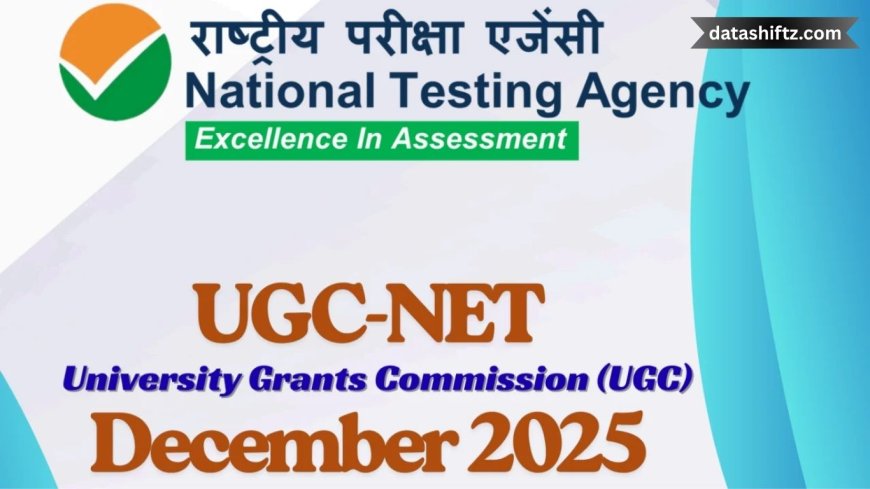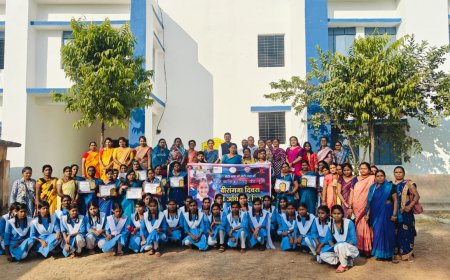UGC NET December 2025: Everything You Need to Know

The UGC NET (University Grants Commission National Eligibility Test) is one of the most sought‑after eligibility exams in India. For aspirants aiming to become Assistant Professors or to earn the Junior Research Fellowship (JRF), the December 2025 cycle is a crucial opportunity. In this blog post, we break down the details you need to know — from dates and eligibility to exam pattern, preparation tips, and more.
Highlights & Important Dates
Below is a tabular summary of the essential information for UGC NET December 2025:
| Feature | Detail |
|---|---|
| Conducting Body | National Testing Agency (NTA) |
| Mode of Exam | Computer Based Test (CBT) |
| Application Window | 25 September – 24 October 2025 |
| Last Date for Fee Payment | 25 October 2025 (up to 11:50 PM) |
| Correction Window | 27 – 29 October 2025 |
| Exam Date | 18 December 2025 |
| Duration / Shifts | 3 hours total; Shift 1: 9:30 AM – 12:00 PM; Shift 2: 3:00 PM – 6:00 PM |
| Subjects Covered | 85 subjects across various disciplines |
| Application Fee (Tentative) | General: ₹1,150; OBC / EWS: ₹600; SC / ST / PwD / Transgender: ₹325 |
| Eligibility (General) | Master’s degree with at least 55% marks |
| Age Limit for JRF | ≤ 30 years (with relaxations for reserved categories) |
| No Age Limit for Assistant Professor | True — no maximum age limit for Assistant Professor eligibility |
Note: The above details are based on the latest official notification and reliable sources. Always verify via the official UGC NET / NTA website for final and updated information.
Eligibility Criteria & Application Process
Eligibility Criteria
To appear for UGC NET December 2025, candidates must meet the following:
-
Have a Master’s degree or equivalent from a recognized university with at least 55 % marks (General category). For SC / ST / OBC / PwD, there is typically a 5 % relaxation.
-
For JRF, the upper age limit is typically 30 years, with age relaxation for reserved categories.
-
There is no upper age limit for applying as Assistant Professor.
-
Final year postgraduate students are often allowed to apply, provided they complete their degree before a specified date (check the official notification).
Application Process
Here is a step‑by‑step of how to apply:
-
Visit the official website: ugcnet.nta.nic.in (or relevant NTA portal)
-
Register as a new user (provide basic personal and contact details).
-
Fill out the educational qualification section, subjects, and choices.
-
Upload scanned copies of photograph, signature, and category / PwD certificate (if applicable).
-
Pay the application fee online (as per your category).
-
Download and save the confirmation page / acknowledgement slip.
-
In the correction window (if opened), make corrections to the form.
Exam Pattern & Marking Scheme
Understanding the exam structure is vital for effective preparation. Here is the pattern:
-
The exam consists of two papers — Paper I and Paper II.
-
Paper I: 50 multiple choice questions, common across disciplines. Each question carries 2 marks.
-
Paper II: 100 multiple choice questions, subject-specific (candidate’s chosen subject). Each question also carries 2 marks.
-
Total Marks: 300 (Paper I = 100, Paper II = 200)
-
Time: 3 hours (180 minutes) for both papers combined.
-
Negative Marking: None (i.e., no penalty for wrong answers)
Preparation Strategy & Tips
To increase your chances of success, follow a structured preparation strategy. Below is a list of tips:
Top Preparation Tips
-
Begin early, giving enough time to cover both Paper I and Paper II thoroughly.
-
Familiarize yourself with the latest syllabus and past years’ question papers.
-
Focus first on Paper I topics (research aptitude, reasoning, teaching and learning, etc.).
-
Then shift to your subject-specific topics for Paper II.
-
Practice with mock tests under timed conditions to build speed and accuracy.
-
Analyze your performance: look at mistakes and weak areas, then revise accordingly.
-
Stay updated with relevant current affairs, as some questions may involve general awareness.
-
Maintain consistency — study daily, even if for shorter durations.
-
Join study groups / peer discussion forums (online or offline) to clarify doubts and exchange ideas.
-
Take short breaks and maintain mental well‑being; avoid burnout.
Realistic Timeline & Strategy
Because the exam date (18 December 2025) will be here before you know it, plan your months strategically. Here’s a suggested monthly breakdown:
| Month | Focus Area |
|---|---|
| September (after application) | Get syllabus, plan study plan, begin Paper I topics |
| October | Continue Paper I + start subject-wise Paper II topics |
| November | Intense revision + mock tests + catch up on weak areas |
| Early December | Full-length mock tests, revision, final touches |
| 1–2 weeks before exam | Light revision, rest, avoid last-minute panic |
Why the December 2025 Cycle is Important
-
Dual Opportunity: UGC NET is held twice annually (June & December). If you miss this, you'll wait until June 2026.
-
Eligibility for JRF & Assistant Professor: Clearing December gives you eligibility for both roles or either, depending on your scores.
-
PhD Admissions: Many universities accept UGC NET qualification scores for admission into doctoral programs.
-
Validity: NET qualification is often valid for a lifetime (subject to rules); thus, once you clear, you can reap the benefit.
-
Competitive Edge: Many aspirants take up this exam — clearing it in December gives you a head start.
Common Mistakes to Avoid
-
Ignoring the official notification and relying solely on speculative updates.
-
Underestimating Paper I while focusing only on subject topics.
-
Not attempting full-length mocks under exam conditions.
-
Neglecting revision time or leaving topics to the very end.
-
Ignoring weaker topics or skipping them.
-
Failing to keep track of exam-related updates (admit card, city allotment, etc.).
Conclusion
The UGC NET December 2025 cycle presents a golden chance for aspirants to secure eligibility for academic and research roles in higher education. With the application window open (25 September to 24 October 2025) and the exam scheduled for 18 December 2025, time is of the essence.
By understanding the eligibility norms, exam pattern, and preparing with discipline and strategy, you can maximize your chances. Use mock tests, stay consistent, and pay attention to your weak areas. Most importantly, keep calm and maintain confidence.




























